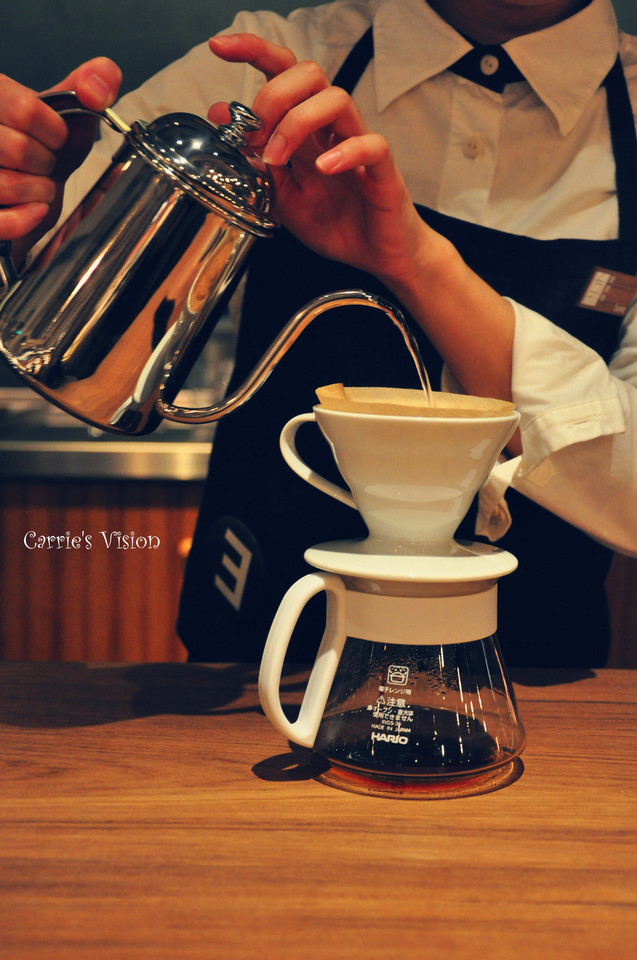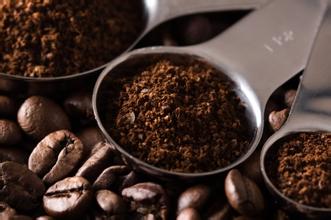A brief discussion on the extraction time, extraction mode and powder strength of espresso from pressing powder to extraction coffee
First of all, the grinding degree of coffee every day will be adjusted appropriately after the test cup in the morning according to the weather, humidity and temperature. during the test cup, we should observe the state of coffee extraction and the taste after quenching! Finally, a judgment is made to determine the strength of the powder pressing.
In previous articles, I have also stressed that the degree of grinding and powder strength are not immutable! Pay attention to and fine-tune every day or even every moment! Therefore, the finer the grinding, the strength of the pressing powder should be relatively reduced, and the strength of the grinding should be adjusted relatively. Of course, these two situations also have a great impact on the taste of coffee!
Recently, there is such a phenomenon in the store. after the grinding degree has been adjusted, the strength of the pressing powder has not changed, and two situations have occurred during the cooking and extraction: the first is the appearance of dark brown oil, and the flow pattern of the coffee liquid during quenching is also unstable. in the early stage, it is too fine, it is difficult to get out of the water, and the extraction time is too long, that is, the first phenomenon of excessive quenching, there will be scorched taste. And there will be coffee grounds in the mouth. This is the typical result of excessive powder pressing. The second is that the quenching time is short, the effluent is too thick, about 15 seconds out of 30CC, the coffee color is light brown, the taste is sour! This is typical of the small strength of the pressing powder, and the rapid passage of water through the coffee powder!
Therefore, no matter which barista wants to make a good cup of espresso or according to the weather conditions of the test cup, quenching state, coffee taste, adjust the grinding degree and then adjust the strength of the powder! It's not that the harder you press the powder, the better!
Secondly, the strength of pressing powder and the amount of powder also have a great relationship!
First, let's talk about what is the most important thing about the taste and taste of espresso. The first thing to say is the smoothness and smoothness of the coffee, the second is the aroma and mellowness of the coffee, and the third is the aftertaste and fragrance between the teeth! Then the main factor that will affect these three points is the fat of coffee! The fat of a good espresso can account for 70% to 80% of the total coffee, and it should not be less than 50% when served in front of the customer. It is also necessary to give the customer advice on the method and content of the taste. It is best to let the customer drink all of it within three mouthfuls. This is not to make the customer drink quickly, but to make sure that the coffee has enough calories and fat when tasting the coffee. In order to ensure that the tasters can taste the true meaning of espresso!
Yes, the amount of powder will affect the quantity and quality of oil! Of course, not only this will affect the grease, blending, baking, grinding and so on will affect the grease. Therefore, under the above moderate conditions, the fine adjustment of the amount of powder will have a great impact on the taste of oil and coffee. For example, when the amount of powder in a single cup is slightly more than 7 grams, the strength of the pressing powder is relatively reduced, and the oil produced by coffee lasts a little longer, the fat is thicker, and the taste is more balanced. Therefore, the strength of pressing powder can be adjusted according to the amount of powder, so as to adjust the taste and taste of coffee!
Thirdly, the strength of pressing powder is also directly related to the roasting degree of coffee beans!
Here is a brief talk about the beans used to make espresso. As we all know, espresso beans are made by pairing, because a single variety of beans can not meet the requirements of espresso taste, so spelling and taste adjustment is also a major factor affecting the taste. Since coffee is made by blending, then there is the problem of roasting.
In western countries, most of espresso's coffee is made from French to Italian roasted beans, because of the gradual requirements for the taste of coffee due to the history of coffee development and Westerners' meat eating habits. In the East, however, the culture and history of coffee in the East are not far-reaching enough. The judgment on the taste of coffee is mostly bitter, and the eating habits are mostly vegetarian in the eastern way. Therefore, most coffee makers and roasters like to reflect the sour taste of coffee more obviously, so that the heavy taste of espresso is reduced. That is to say, Easterners seldom roast coffee beans to achieve a real Italian effect.
So under this degree of roasting, coffee also wants to highlight the balance of taste, what should we do? Yes, we can figure out a way to press the coffee powder! Some people have put forward the theory that if the pressure of the coffee powder is too strong, the stronger the coffee powder is, the more water will slowly pass through the coffee powder, and the more sufficient the extracted ingredients will be, which can make up for the phenomenon that the coffee taste is too sour and the taste is not thick enough! Of course, this theory has its disadvantages: first, it is easy to extract too much, that is, scorched taste; second, if it is not mastered well, it will prolong the quenching time and extract the bad ingredients from the coffee, and third, it is easy to cause extreme taste, that is, the bitter taste, no fragrance to speak of. It can be said that the taste bias is a major feature, but a good espresso is still based on the balance of taste!
Therefore, the production of espresso is not immutable, it is necessary to fine-tune the strength of the powder according to various situations! the state, taste and taste of espresso is king!
Source: happy Coffee Xiao Xu's blog
Important Notice :
前街咖啡 FrontStreet Coffee has moved to new addredd:
FrontStreet Coffee Address: 315,Donghua East Road,GuangZhou
Tel:020 38364473
- Prev

Several factors that should be paid attention to in steaming the process and time of steaming coffee by hand
Steaming is a very important link in the process of making hand-brewed coffee. Good steaming can fully infiltrate the coffee powder and activate the coffee activity, thus making the coffee extraction process more smooth. So how to do a good steaming? Steaming literally means to cover the ground coffee powder with a lid and let it react in it to facilitate later production.
- Next

Espresso production: the effect of grinding thickness of coffee beans on the quality of coffee
I talked about the steps of pressing powder in the process of making Espresso and the strength of pressing powder, and mentioned a little about the factors that affect the strength of pressing powder, one of which is the degree of grinding of coffee powder. Grinding refers to the process of grinding coffee beans into the coffee powder used in making coffee by using a bean grinder (or manual grinding apparatus), and the degree of grinding refers to the thickness of the coffee powder.
Related
- Beginners will see the "Coffee pull flower" guide!
- What is the difference between ice blog purified milk and ordinary milk coffee?
- Why is the Philippines the largest producer of crops in Liberia?
- For coffee extraction, should the fine powder be retained?
- How does extracted espresso fill pressed powder? How much strength does it take to press the powder?
- How to make jasmine cold extract coffee? Is the jasmine + latte good?
- Will this little toy really make the coffee taste better? How does Lily Drip affect coffee extraction?
- Will the action of slapping the filter cup also affect coffee extraction?
- What's the difference between powder-to-water ratio and powder-to-liquid ratio?
- What is the Ethiopian local species? What does it have to do with Heirloom native species?

